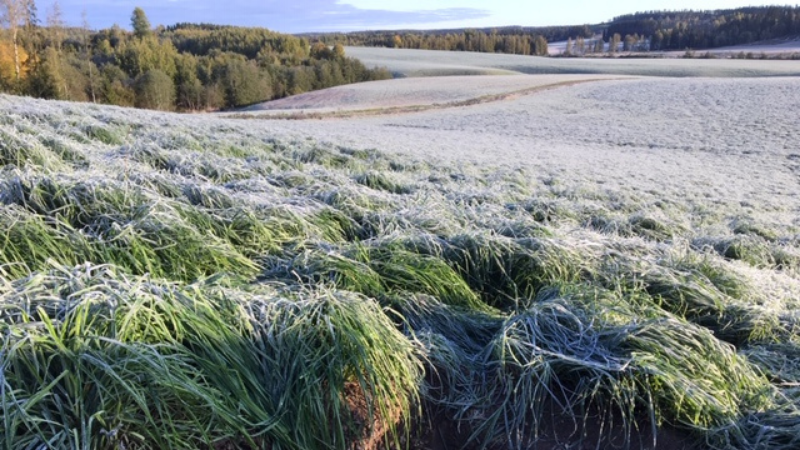by Central Union of Agricultural Producers and Forest Owners – MTK
Description
Extreme weather events – drought, heat and heavy rains – more than before plus shorter Winters and snow cover are affecting Finland.
MTK’s Climate Programme has four pillars:
- Emissions down;
- Sequestration up;
- Replaced by renewables;
- Adaptation as a key.
The programme recalls the essential role of productive plant growth and photosynthesis in sequestering carbon dioxide from the atmosphere. It recalls research and information to reveal the capacity of active farming and forest management in sequestering and storing carbon and in substituting for fossil materials and energy. The programme shows how farmers and forest owners are key players, contributing to tackling climate challenges:
- On farmland, crop rotation by perennial grasses sequestrate carbon and improves soil structure to adapt. This means that after heavy rains puddles disappear quickly and soil holds heavy machinery, also after the grass period. Soil is also easier to till and retain moisture when soil organic matter increases;
- Green cover by growing crops and reduced tillage reduce emissions which means mitigation, likewise manure spreading by placement below the soil surface;
- In the forest, trees need to be thinned to make them grow and small trees need to be taken care of to be able to grow and sequester carbon which means mitigation;
- Overall, the sustainable management of land which maintains green cover and renews the growth after harvest on farmland and forest is a practice for mitigation, and also a crucial part of adaptation as roots heal soil to adapt.
Results
The productivity of soils remains, and the resilience to produce during less favourable seasons is strengthened, because of increased soil organic matter on farmland. In forests, active management reduces risks of insects or fires.
Climate smartness*
It is worth highlighting that this initiative has clearly defined aspects within the CSA approach because the four pillars of the MTK’s Climate program are completely aligned with CSA. The promoted practices on the project aim for sustainable production, emissions reduction, carbon sequestration, and increasing the resilience of agricultural systems to different climatic events.
It is recommended to include building capacity processes that allow strengthening how farmers understand and use climate information so that they make better-informed decisions considering their context-specific conditions and CSA practices available to implement.
*This is done in the framework of climate-smart agriculture (CSA) approach. Climate-smartness in agriculture means understanding impacts of climate change and variability along with the agricultural activity, which includes the planning of what crop to plant, when to plant, what variety to plant and what type of management practices are needed to reduce the impact on the environment (e.g. emissions reduction), maintain or increase productivity (e.g. yields) while increasing resilience and improving livelihoods.


